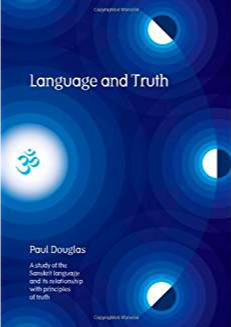In order to experience the Self, AtmAnubhava, we should first know where the “I” is. If the ‘I’ is not already with us, we have to make an effort to obtain it.
In general, there are four ways by which we can obtain a thing. Say, we have to obtain a pot. If no pot is available, we have to newly produce (make) one. Or suppose it is available with someone or somewhere. We have to procure it from that place. Or, say, we have some components and not exactly a pot. We have to assemble the components or modify them in order to get the pot. Or, a pot is available but it is dusty or dirty. We have to wash off the dirt and make it neat and clean. These four ways are known as utpatti (production), Apti or prApti (procurement), vikArya (modification) and samskriti (refinement) respectively. Now let us apply it to the problem we have.
Do we have to newly produce the Self, or get It from some other place, or cleanse and refine the Self that already exists?
One may produce an idol or a symbol of a deity but none can manufacture the formless Self. Moreover, the knowledge that “I am” is already with us and that knowing itself is the Self. Therefore, we need not newly produce the Self. Continue reading


